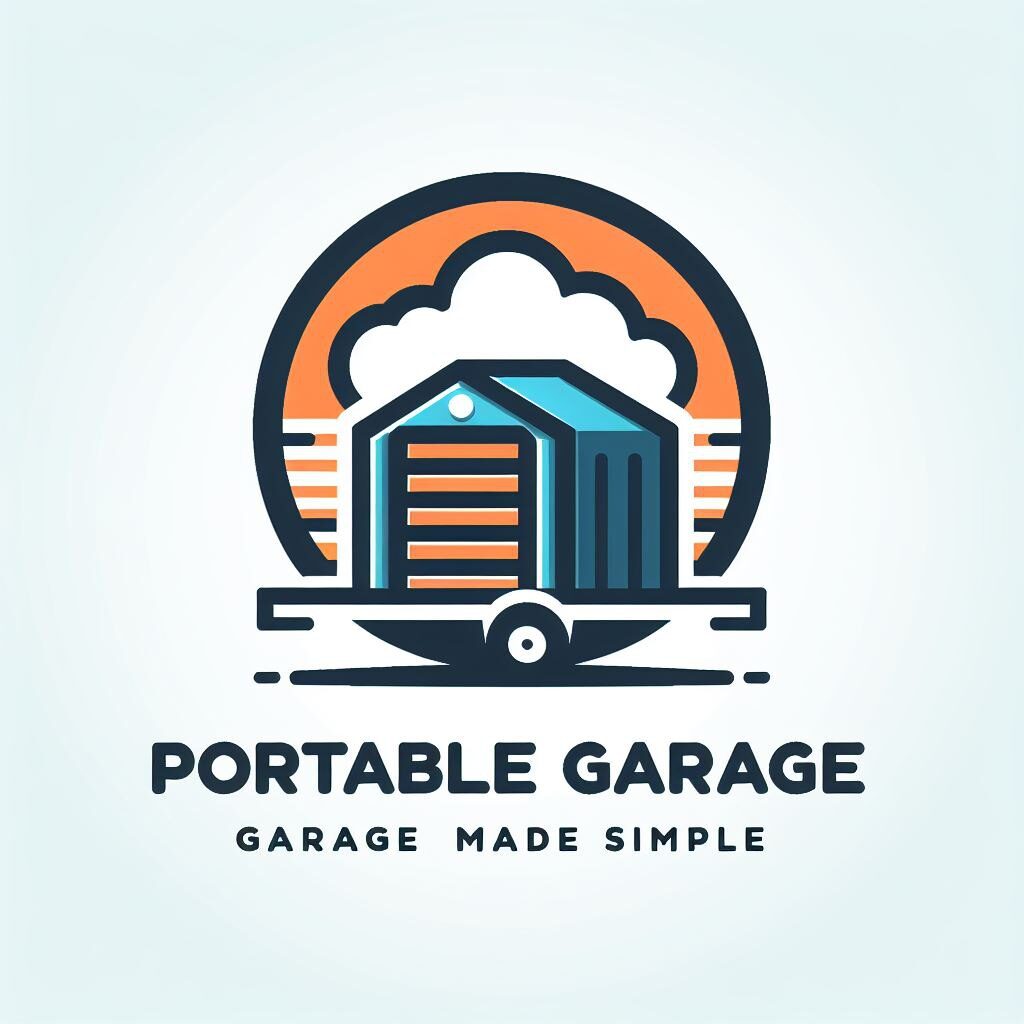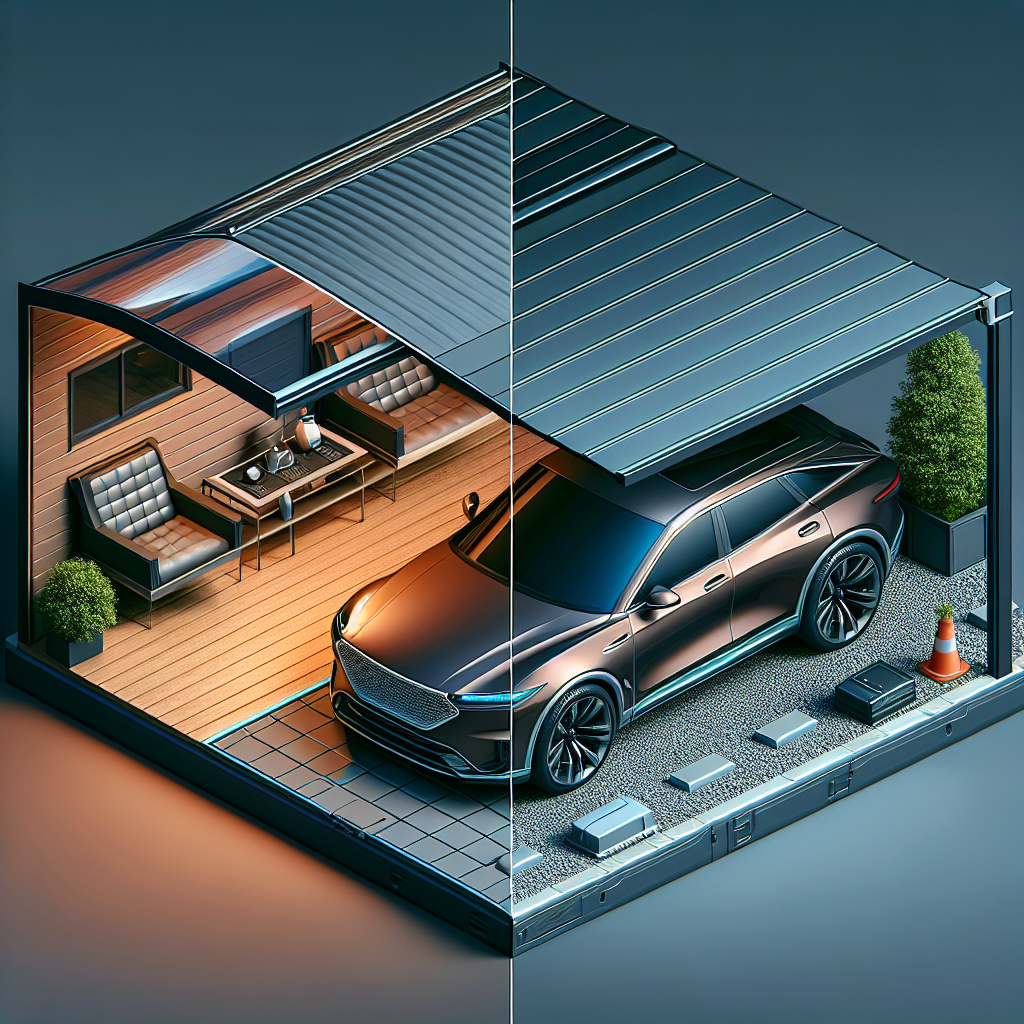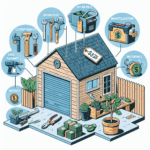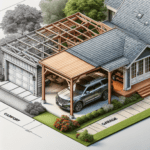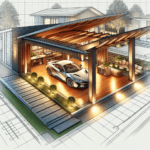If you’ve ever wondered about the cost of adding a carport to your property, you’re not alone. Whether you’re looking for extra protection for your vehicles or a covered outdoor space for various activities, knowing the average cost of a carport can be helpful in planning your budget. In this article, we’ll discuss different factors that can influence the price of a carport and provide you with a general idea of what to expect when considering this addition to your home or business.
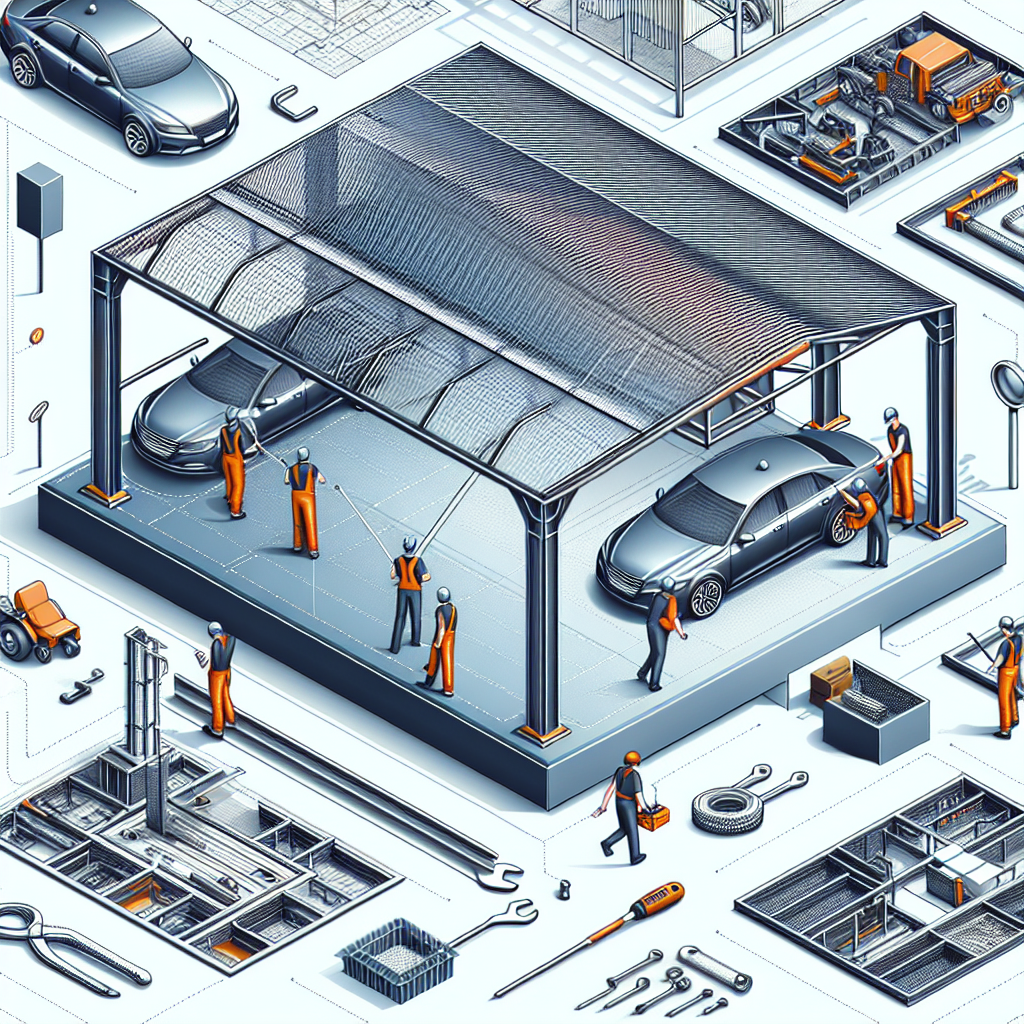
Factors Affecting Carport Cost
When it comes to determining the cost of a carport, several factors come into play. These factors can vary depending on various aspects such as size, design, materials used, location, additional features, and labor costs. Understanding these factors is crucial in estimating the overall expense of building a carport.
Size and Design
The size and design of the carport are significant factors that influence the cost. Naturally, larger carports will require more materials, and as a result, the cost will be higher. Additionally, the complexity and uniqueness of the design can impact the overall price. Custom designs and intricate detailing often come at a higher expense compared to standard or pre-designed structures.
Materials Used
The choice of materials used for a carport plays a vital role in determining its cost. There are various options available, including metal, wood, and aluminum, each with its own associated expenses. Metal carports are generally more affordable and durable, whereas wooden carports offer a more traditional and aesthetically pleasing appearance. Aluminum carports fall somewhere in between, providing a balance between cost and durability.
Location
The location where the carport will be constructed can affect the overall cost. Certain areas may have specific zoning requirements or building codes that need to be adhered to, potentially requiring additional permits or inspections. Additionally, geographical factors such as soil type and weather conditions can also impact the cost. For example, areas prone to high winds or heavy snowfall may necessitate stronger and more expensive materials.
Additional Features
The inclusion of extra features in a carport can significantly increase its cost. These additional features may include extra height for accommodating oversized vehicles, enclosed walls for improved security, windows and doors for a more convenient access, gutters and downspouts for proper drainage, insulation for temperature control, and lighting for enhanced visibility. Each feature adds to the total expense, and it’s important to consider which ones are necessary for your specific needs.
Labor Costs
Labor costs are another significant factor to consider when calculating the overall cost of a carport. If you choose to hire professionals for the construction, installation, or assembly of your carport, their fees will be an additional expense. The complexity of the project, the size of the carport, and the duration of the labor required will determine the labor costs. However, it is worth noting that professional installation often ensures a higher quality outcome with better structural integrity.
Average Cost of Carports
Now that we have explored the factors affecting carport cost, let’s take a look at the average prices for different types of carports. Please keep in mind that the following figures are general estimates based on current market trends, and prices may vary depending on your specific location and other factors.
Single Carport
On average, a single carport can cost anywhere between $1,000 and $3,000. The final price will depend on the size, materials used, and any additional features you choose to include. Simple designs and metal materials tend to be more affordable, while larger sizes or custom designs may lean towards the higher end of this range.
Double Carport
A double carport, designed to shelter two vehicles, generally ranges from $2,000 to $5,000. Again, the exact cost will depend on various factors such as size, materials, and additional features. It is important to consider the size of your vehicles and any potential future needs when determining the dimensions of your double carport.
Triple Carport
For those with an even greater need for vehicle coverage, a triple carport can be a suitable option. Typically priced between $3,000 and $7,000, triple carports offer ample space to accommodate three vehicles. As with any carport, the final cost will be influenced by the materials used, design complexity, and any additional features selected.
RV Carport
If you own a recreational vehicle (RV), you may require a specialized carport to provide it with suitable protection. The average cost of an RV carport can range from $5,000 to $10,000 or more, depending on the size, materials, and any unique features required. These carports are designed to accommodate larger vehicles, ensuring they are adequately shielded from the elements.
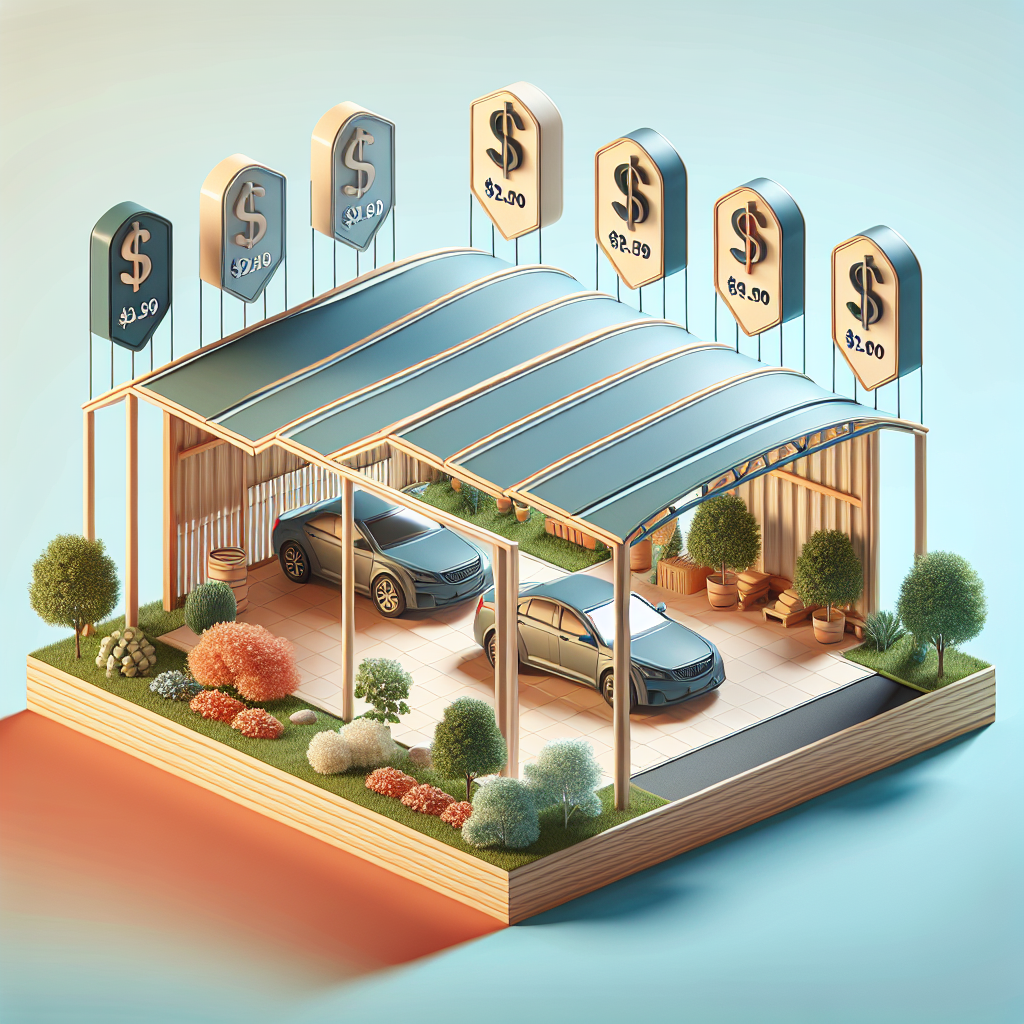
Cost Breakdown by Materials
Let’s now delve into the different types of materials commonly used for carports and their associated costs. Understanding the cost breakdown by materials will enable you to make an informed decision while considering both your budget and personal preferences.
Metal Carports
Metal carports are a popular choice due to their affordability and durability. On average, the cost of a metal carport can range from $1,000 to $4,000. The price is primarily determined by the size, design complexity, and any additional features included. It’s worth noting that metal carports can be easily customized, offering a wide range of options to suit your needs.
Wooden Carports
For those seeking a more traditional or aesthetically pleasing option, wooden carports may be the preferred choice. They generally cost between $2,000 and $6,000, depending on the size, design, and any added features. Wooden carports offer a rustic charm and can be stained or painted to match your home’s exterior, providing a seamless and visually appealing integration.
Aluminum Carports
Aluminum carports strike a balance between the affordability of metal carports and the visual appeal of wooden ones. Typically priced between $1,500 and $5,000, aluminum carports are lightweight, durable, and resistant to corrosion. Like other materials, the final cost will depend on various factors, such as size, design, and any additional features you choose.
Cost Breakdown by Additional Features
Additional features can greatly enhance the functionality and aesthetics of your carport, but they also come at an additional cost. Here is a breakdown of some common additional features and their associated prices.
Extra Height
If you have oversized vehicles or equipment that require extra height clearance, adding this feature to your carport can range from $100 to $500 or more, depending on the size and complexity of your carport.
Enclosed Walls
Enclosing the walls of your carport provides increased security and protection from the elements. The cost of enclosing walls can vary significantly based on the size and material used, ranging from $500 to $3,000 or more.
Windows and Doors
To enhance accessibility or allow natural light into your carport, adding windows and doors can range from $200 to $1,000 or more. The price will depend on the number of windows and doors, as well as the materials chosen.
Gutters and Downspouts
Effective drainage is essential for the longevity of your carport. Installing gutters and downspouts may cost between $200 and $500, depending on the size and complexity of the carport.
Insulation
For those who require year-round temperature control in their carport, insulation is a recommended feature. The cost of insulation can range from $500 to $2,000 or more, depending on the size and materials used.
Lighting
Installing lighting in your carport ensures visibility during nighttime hours and adds an extra layer of safety. The cost of lighting can vary, but on average, it ranges from $100 to $500, depending on the type and number of fixtures installed.
DIY vs. Professional Installation
Once you have a clear understanding of the factors influencing carport cost and the breakdown of prices by materials and additional features, you can consider whether to tackle the installation yourself or hire professionals.
DIY Installation
Opting for a DIY installation can save you money. However, it’s essential to assess whether you possess the necessary skills, tools, and time to complete the project successfully. DIY installation may be a suitable choice for experienced individuals who are comfortable with construction projects, but it’s important to weigh the potential risks versus the potential savings.
Professional Installation
Hiring professionals ensures that the carport is correctly constructed, adheres to building codes, and meets safety standards. The cost of professional installation can range from 20% to 50% of the total carport cost, depending on the complexity of the project. While it represents an additional expense, professional installation provides peace of mind and a guarantee of quality workmanship.
Permit and Inspection Fees
Before constructing a carport, it is essential to check with your local planning department to determine if any permits or inspections are required. The cost of permits and inspections can vary depending on your location and the specific regulations in place. It is crucial to factor in these fees when budgeting for your carport project.
Tips for Saving Money on Carport Costs
If you’re looking to save money on your carport project, consider the following tips:
Compare Quotes
Obtain several quotes from different suppliers or contractors to ensure competitive pricing. By comparing quotes, you can identify the best value for your budget and specific requirements.
Consider Used Carports
If budget is a significant concern, consider purchasing a used carport. Many individuals sell their carports at lower prices when upgrading or relocating. However, ensure you thoroughly inspect any used carports for potential structural issues or damage.
Avoid Custom Designs
While custom designs can be visually appealing, they often come with a higher price tag. Opting for pre-designed or standard carport models can help save costs without compromising functionality.
Shop Off-Season
Timing your carport purchase strategically can result in significant savings. Off-season or end-of-season sales typically offer discounts on carports. Planning your project during these times can help you secure a better deal.
Do Some of the Work Yourself
Consider taking on certain tasks, such as site preparation or landscaping, on your own. By doing some of the work yourself, you can reduce labor costs and potentially save money.
Conclusion
In conclusion, the cost of a carport can vary depending on several factors, including size, design, materials used, location, additional features, and labor costs. Understanding the impact of these factors is crucial in estimating the overall expense. With careful planning, consideration of materials and features, and the choice between DIY or professional installation, you can find a carport that meets your needs while staying within your budget. Remember to check local regulations, obtain necessary permits, and explore cost-saving strategies to make the most of your carport investment.
